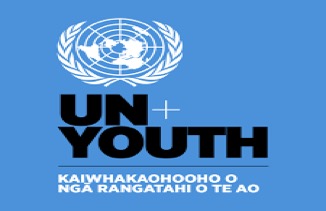Edition: Monday, February 2, 2026 at 7:37 PM
United Nations (UN) has long recognized that young people are a major human resource for development and key agents for social change, economic growth and technological innovation.
Participation in decision-making is a key priority area of the UN agenda on youth.
In 1995, on the tenth anniversary of International Youth Year, the United Nations strengthened its commitment to young people by adopting the World Programme of Action for Youth (WPAY), an international strategy to more effectively address their problems and increase opportunities for participation in society.
The international community has reaffirmed its commitment to youth participation through UN General Assembly resolution 58/133, which reiterates the “importance of the full and effective participation of youth and youth organizations at the local, national, regional and international levels in promoting and implementing the World Programme of Action and in evaluating the progress achieved and the obstacles encountered in its implementation”.
Subsequent resolutions have also dealt with policies and programmes involving youth as well as promoting youth participation in social and economic development.
The United Nations is doing a considerable amount to invest in youth.
We are acquiring knowledge and best practices about the issues affecting young people today.
And we are making greater efforts to engage youth in our negotiating and decision-making processes.
Still, I do not think we have gone nearly far enough” Secretary-General's Remarks to General Assembly High-Level Meeting on Youth, 2011.
Parallel to the youth-related work the different UN agencies and programmes are doing, the General Assembly and its subordinate organs are also involved in youth development.
Currently, it is the Third Committee of the United Nations General Assembly and the Commission for Social Development that are the main intergovernmental bodies which monitor the progress, constraints, and emerging topics related to youth issues within the UN.
The Third Committee of the General Assembly considers youth issues once every two years under its resolution, “Policies and programmes involving youth.”
Similarly, the Commission for Social Development takes youth issues
once every two years under its resolution, “Policies and programmes involving youth.”
The Joint Statement by Heads of UN Entities of the Inter-agency Network on Youth Development on the occasion of the UN High-Level Meeting on Youth in 2011 further retreated the commitment on youth participation “full and effective youth participation in society and decision-making, in both rural and urban settings, striving to include young people with disabilities, young people living with HIV, indigenous young people, young people from minorities, young migrants, young people who are stateless, internally displaced, young refugees or those affected by humanitarian situations
or armed conflict.”
The UN system is coming together to develop the UN system wide action plan on youth. This process saw engagement of young people by bringing their voices on an online platform that got over 16,000
replies.
There is a stronger focus on youth participation and greater recognition to youth led organisations.
The proposed changes at the UN mark a shift that needs to be recognised in the time to come and the greatest test will be how youth worldwide are recognised through their voice, action and partnership in the UN systems and beyond.
Source: Youth News


